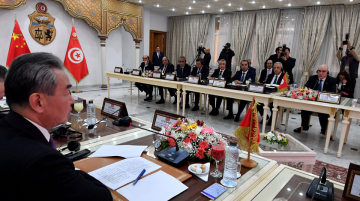China’s Foreign Minister Wang Yi is in Africa this week. It has become a Chinese tradition that FMs make their first overseas trip to Africa. It triggers a second (less red-carpeted) tradition: people like me puzzling over why certain countries were chosen over others.
The FM visited Egypt and will visit Tunisia, Togo, and Côte d’Ivoire. Afterward, he will also travel to Brazil and Jamaica. It should be noted that the reasoning behind the itinerary is never disclosed and that any speculation remains just that: speculation.











